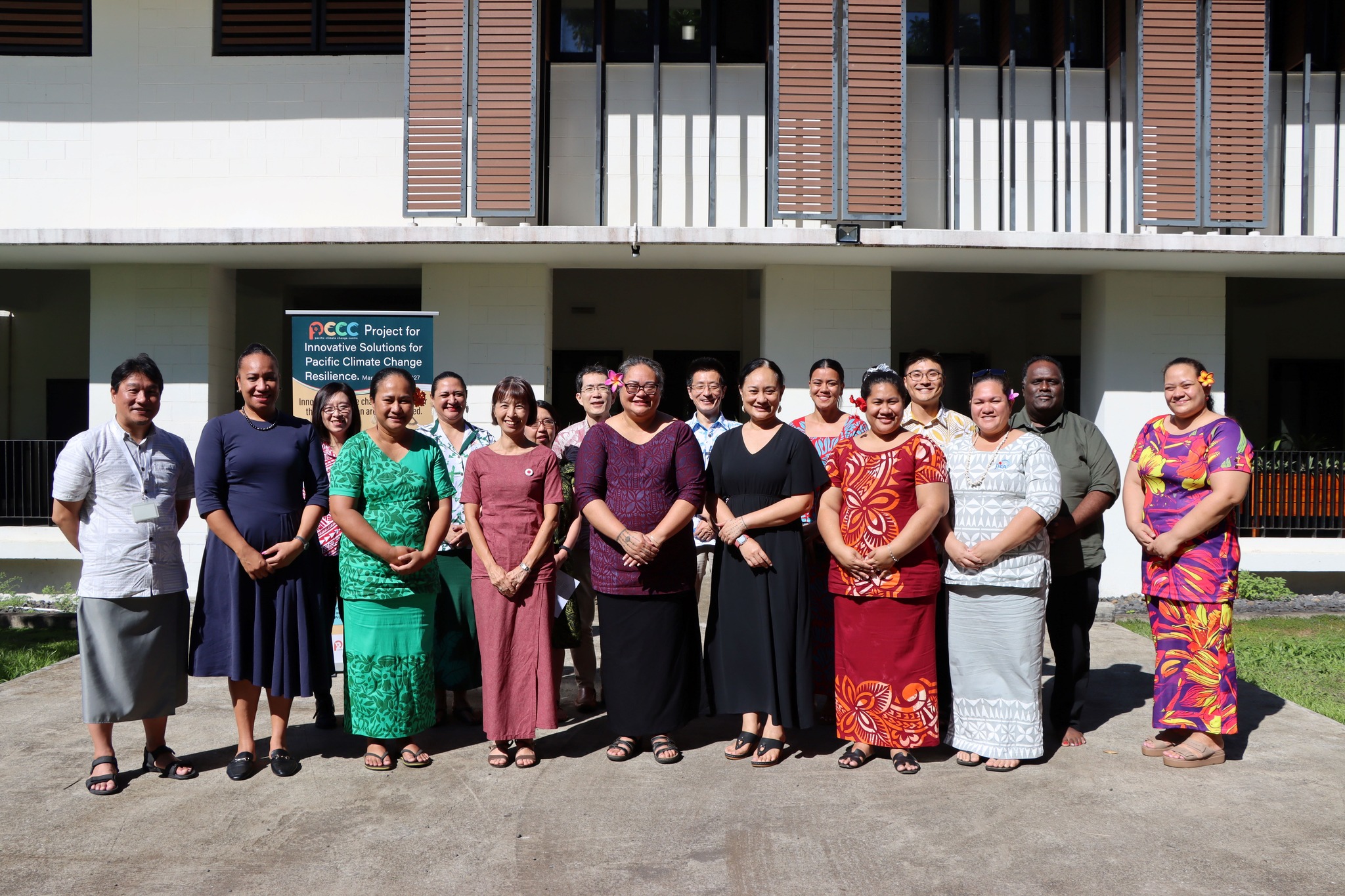4 July 2025, Apia, Samoa – Capacity building, knowledge sharing and enhancing co-ordination between public and private sectors. Considered critical for developing innovative solutions in response to the climate crisis, these were highlighted as some of the achievements during the opening of the second Joint Coordination Committee Meeting (JCC 2) for the Project on Innovative Solutions for the Pacific Climate Change Resilience (ISPCCR).
Held on 3 July 2025 at the Pacific Climate Change Centre (PCCC), the meeting brought together project partners to reflect on the progress made over the last twelve months, present key achievements and challenges in implementation, as well as chart the path for activities over the next year.
Hosted at the PCCC, the project is implemented in partnership between the Government of Samoa, Japan International Cooperation Agency (JICA) and the Secretariat of the Pacific Regional Environment Programme (SPREP) through the Pacific Climate Change Centre (PCCC).
Government of Samoa representative, Acting Chief Executive Officer for the Ministry of Foreign Affairs and Trade, Ms Matilda Bartley commended the work of the project and its added value to regional efforts in climate resilience.
“The ISPCCR holds immense value, by focusing on capacity building, knowledge sharing, and enhancing public and private collaboration to promote innovation,” Ms Bartley said.
“The Pacific Climate Change Centre is the regional hub for climate change knowledge and brokerage, research and innovation and capacity building, and continues to play a critical role in this effort. The work undertaken through this project reflects the shared vision of ensuring that Pacific communities are not only recipients of climate information but co-creators of solutions.”
The Pacific region faces increasing vulnerability to climate induced risks. Sea level-rise, extreme weather events, and the shifting patterns of ecosystems threatens the very foundations of Pacific livelihoods, cultures and identities. And with limited resourcing and capacity, Pacific countries and territories must employ innovative solutions to battle the climate crisis.
SPREP Acting Director General, Ms Easter Chu Shing spoke to key milestones between the project and the PCCC in developing innovative solutions. She noted the project’s ongoing capacity building programme, aimed at enhancing regional understanding of climate change, assessing risks and vulnerabilities across critical sectors, and the Virtual Exhibition on Climate Change Innovative Solutions, which provided a platform where innovators, private sector, academia, NGOs, public sectors and development partners came together to learn about solutions applicable and relevant to a Pacific context.
Ms Chu Shing further highlighted the importance of partnerships for the sustainability of climate action in the Pacific.
“The Centre stands as a testament to the strong and enduring partnership between the Government of Japan, the Government of Samoa, and SPREP/PCCC. Catalysing investment in climate resilience remains central to the Centre’s mission, and the ISPCCR project continues to advance this vision through its delivery across the Centre’s core functions.
She expressed her gratitude to the Government of Samoa, Government of Japan, Australia and New Zealand for their support to the work of the Centre.
The Centre was pledged by the Government of Japan at the Seventh Pacific Islands Leaders Meeting in 2015 to respond to a number of climate change needs in the Pacific region, delivering four key functions, knowledge brokerage, applied research, capacity building and innovation.
“Humanity has overcome many hardships throughout history, and climate change is the most urgent crisis we face today. With the development of science and co-operation in developing innovative solutions I believe we can overcome the challenges presented by climate change,” said JICA Resident Representative, Ms. Yumiko Asakuma.
Ms Asakuma shared that the PCCC is a significant co-operation activity for the Agency. She noted ISPCCR has been instrumental in delivering a key function of the PCCC as the Centre of Excellence for climate in the Pacific region. She commended the work of the Secretariat, Government of Samoa officials, JICA experts and the project team for their work in enhancing climate resilience in the Pacific region through the project.
At the meeting, the progress and achievements of past activities were presented, including a stocktake assessment of innovative climate change approaches and solutions, the results of the first training course ‘Innovative Solutions and Climate Change Impacts in the Pacific’ and Pacific Climate Change Innovation Exhibition held in 2024. In addition, plans for the second training course, scheduled for September 2025, and a mentoring service to support the formulation of climate change projects under public private collaboration were introduced. Furthermore, initiatives undertaken by PCCC, such as the Pacific Climate Innovation Lounge and the Pacific Climate Innovative Investment Hub, were also explained.
For more information, please contact ISPCCR Project Coordinator, Mr Taiji Watanabe on [email protected]

